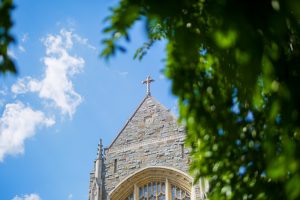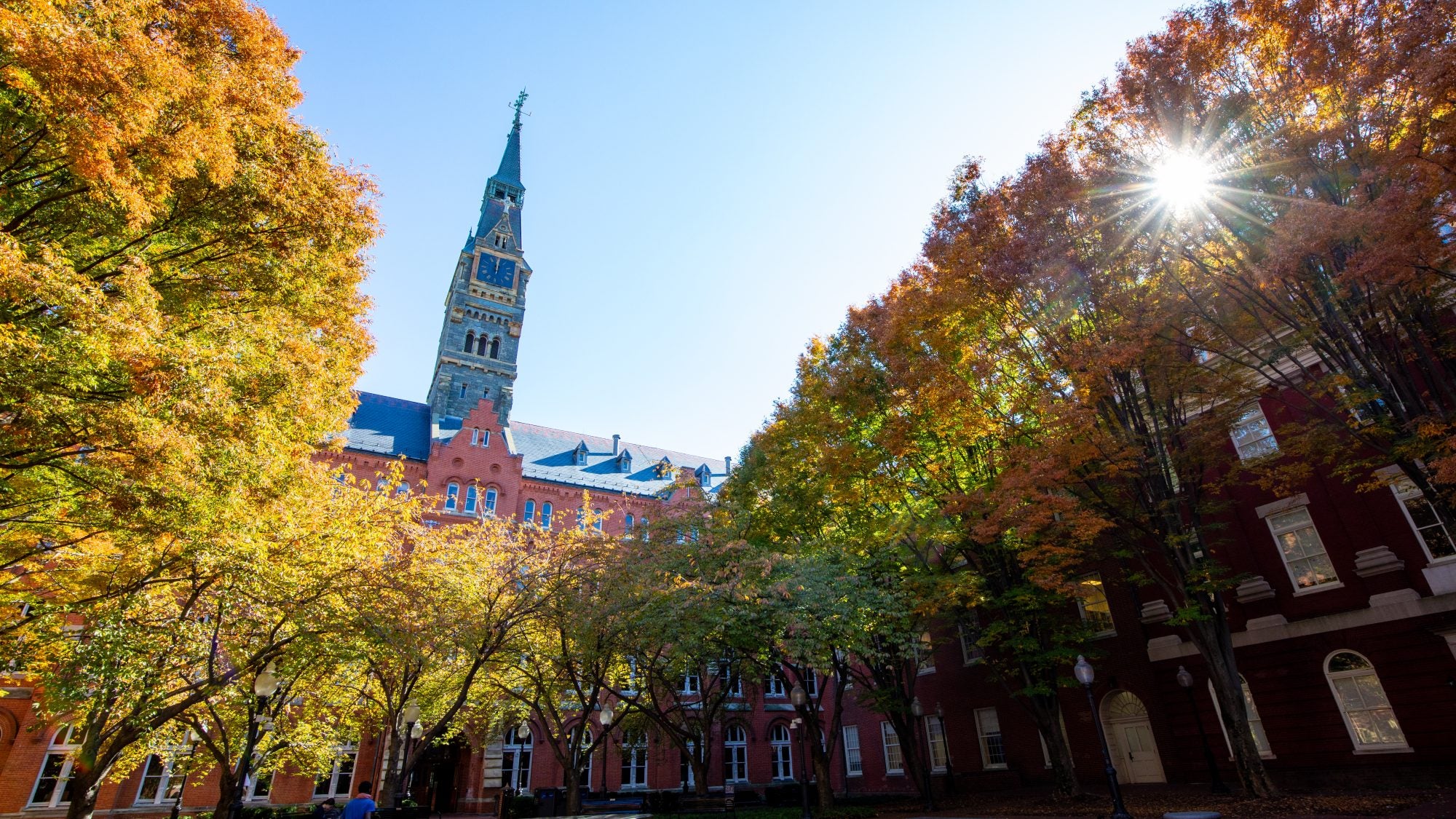The new board members, whose terms began July 1, will serve for three years.
Reynolds, a long-serving board member and former vice chair, succeeded chair William J. Doyle (C’72) on July 1. Reynolds has led a distinguished law career as a partner at Winston & Strawn LLP, a global law firm headquartered in Chicago.
Over the past few decades, the Georgetown alumnus has been dedicated to advancing the university’s mission and campus community. Reynolds served as chair of the Board of Directors’ Law Center committee; as a member of the Board of Regents; and as a member of the steering team committee for the For Generations to Come Campaign, a 10-year fundraising initiative that launched in 2011 and raised a record-setting $1.67 billion for Georgetown.
“We are deeply grateful to the members of our Board of Directors for their leadership, and especially to our Board Chair, Tom Reynolds,” said President John J. DeGioia. “It was wonderful to welcome them to the first in-person meeting since February 2020 and to engage with them on the exciting work taking place in our community.”
Jesuit Identity
As Georgetown continues its celebration of the Ignatian Year, the 500th anniversary of St. Ignatius of Loyola’s spiritual conversion, the board also reflected on Georgetown’s Jesuit identity. They specifically discussed the Society of Jesus’ apostolic preferences, four areas of focus for the Jesuits over the next 10 years.
The Jesuits’ apostolic preferences include showing the way to God; walking with the excluded; journeying with youth; and caring for our common home, focus points that are rooted in Georgetown’s Jesuit foundation and values.
Fr. Mark Bosco, S.J., vice president for Mission & Ministry at Georgetown, and Fr. Ron Anton, S.J., senior advisor for Jesuit Identity at Georgetown’s McDonough School of Business, presented on the apostolic preferences. Fr. Bosco underscored that all Georgetown community members are invited to integrate the preferences into their thinking as they address real-world issues.
“It was an excellent opportunity to engage the board to initiate some discernment about how these four preferences might be part of Georgetown’s way of proceeding in both old and new initiatives of the university,” says Fr. Bosco. “Given that we are celebrating the 500th anniversary of Ignatius of Loyola’s conversion to find God in all things, and given that Georgetown is the oldest Jesuit university in the United States, these universal apostolic preferences make explicit and intentional the ways we live out our mission.”
Strengthening Our Civic Architecture
During their fall meeting, the Board of Directors also celebrated board member and civic entrepreneur Frank H. McCourt Jr. (C’75) and his second investment in the McCourt School, advancing its aspiration to be the nation’s most inclusive public policy school.
The investment includes a $50 million commitment to financial aid and scholarships, serving as a foundation for the school’s efforts to broaden access to a McCourt education, especially for students underrepresented in public policy.
In their remarks, McCourt School Dean Maria Cancian and Frank McCourt reflected on this investment as one part of McCourt’s broader commitment to strengthen civic architecture, including Project Liberty, his transformational initiative to create a more equitable and ethical infrastructure for the internet.
As part of Project Liberty, McCourt has founded the McCourt Institute, an organization that will advance research and technology solutions to serve the common good. The Institute will address large-scale challenges and critical questions about technology’s impact on society with a particular focus on related public policy. Georgetown joins Sciences Po of Paris as the McCourt Institute’s founding academic partners.
Georgetown’s partnership with the McCourt Institute is intended to expand and deepen the university’s commitment to shaping technology’s impact on ethics, policy and governance for the public good, most prominently seen through the work of the multi-disciplinary Tech & Society Initiative.
